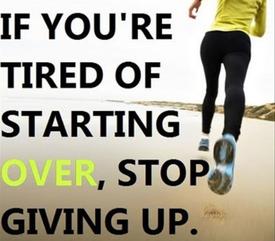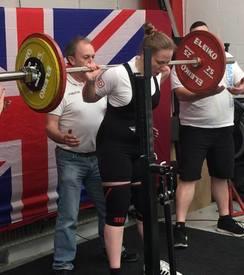HALP! My sandwich isn't CLEAN!

SideSteel
Posts: 11,068 Member
Often times the topic of "clean" eating shows up on the forums.
What is Clean Eating?
Clean Eating is somewhat of an ambiguous term that, depending on the group or dietary philospohy behind it, might have different definitions. A paleo dieter will likely have a different definition of clean eating vs a non-paleo bodybuilder for example. A vegan may have a different definition as well.
It's basically a partitioning of foods into good and bad buckets.
Here's an example:
A typical clean eating bodybuilder would call the following meal "clean"
1c oats
4oz chicken breast
1 scoop whey protein
1c milk
100g broccoli
A paleo adherent would not call the above meal clean as they certainly wouldn't enjoy those oats and milk.
Tosca Reno (author of SEVERAL clean eating books) probably would not call the above "clean" because whey protein is processed and the oats are too.
Mark Sisson, from marksdailyapple (primal diet) has been quoting as calling clean food as being grass fed, and organic, and he also advocates the avoidance of chips, cookies, crackers, grains, pasta, beans, bread, popcorn, energy drinks, soda, juices, candy, vegetable oils and fast food. Oh, but he also sells a protein powder (which is processed and contains added sucrose and maltodextrin). LOL
So essentially, ambiguity is a problem when using "clean" as a determinant in whether or not you should eat or avoid something.
Alan Aragon covers this and other aspects of clean eating quite well, in this article:
http://www.wannabebig.com/diet-and-nutrition/the-dirt-on-clean-eating/
There's an additional issue with the idea of clean eating and it extends beyond clean vs dirty itself, and that's the idea that people are bucketing their food into good and bad instead of looking at the diet as a whole. Diets can be nutrient deficient. They can contain too much of something or too little of something and that excess or shortage could make the diet itself in need of improvement. But an individual food item is only a small portion of that entire diet and as such, you can't conclusively say that a given food item is detrimental without viewing the entire diet and considering how that food item contributes to it.
Here is an example of looking at the entire diet vs looking at an individual food item: If someone were well over their protein requirements and very deficient in their fat requirements, peanut butter and an avocado might be excellent additions to their diet. But if that same person were well over their fat needs, and far under their protein needs, would the same foods be "good" additions to their diet? In the latter case, whey protein might be an ideal fit whereas in the first case it really wouldn't. This is why you can't always look at individual food items and judge them, at least to the point of labeling them as arbitrarily good and bad.
Aside: Nutrient density, satiety, personal reasons (ethical, religious etc), medical conditions, gym performance, taste, are all reasons that you should consider when constructing a diet. A Pop Tart will contain fewer nutrients then the equivalent calories in vegetables and fruit. This doesn't mean that pop tarts are bad and that you should never eat them under any circumstance. As an aside, I know at least one competitive bodybuilder who eats pop tarts as a pre-workout. He eats a very nutrient dense diet, he eats a reasonable amount of calories and macronutrients to meet his goals, and for him, those pop tarts are perfectly fine. Conversely, someone who has no control over their calorie intake and isn't meeting micronutrient needs, should obviously make some dietary changes and for them, including pop tarts is probably not a good idea.
Steve Troutman, who is a successful trainer and owner of Body-Improvements.com, has this to say:
Moral of the story – look at the nutritional quality of your overall diet rather than each individual piece of food on its own. Be aware of the categorizations you’re using to help make decisions and make sure they’re logical.
You can find more of Steve's articles here, and I'd recommend them. As a side note, he also contributes to myfitnesspal.com on the forums.
http://body-improvements.com/resources/eat
Lyle McDonald is, to put it bluntly, brilliant. Call this appeal to authority if you want, but for the most part you'd be a fool to not seriously consider his information. Lyle goes into clean eating in this interesting research review. The review has limitations, which Lyle acknowledges, but this post helps to illustrate that at least in terms of body composition and hormonal response, clean vs unclean is irrelevant. You should really read this entire article but I'll quote this gem as I'm very much against creating additional restrictions on a diet when they aren't needed or even beneficial:
It’s not uncommon for the physique obsessed to literally become social pariahs, afraid to eat out because eating out is somehow defined as ‘unclean’ (never mind that a grilled chicken breast eaten out is fundamentally no different than a grilled chicken breast cooked at home) and fast food is, of course, the death of any diet. This is in addition to the fact that apparently eating fast food makes you morally inferior as well. Well, that’s what bodybuilders and other orthorexics will tell you anyhow.
http://www.bodyrecomposition.com/research-review/hormonal-responses-to-a-fast-food-meal-compared-with-nutritionally-comparable-meals-of-different-composition-research-review.html
You'll see evidence of some of the confusion that clean eating causes if you pay attention to the main forums. Every few days someone will ask for a list of foods or even worse, they'll ask permission to eat a certain food because they don't know if this food item is "clean" or not. I don't fault the people for asking, but it's evidence that the concept of clean eating can lead people to total confusion.
If you have to ask whether or not it's okay to eat one serving of a specific food, and you don't have a medical reason, then I'd claim that you're doing it wrong.
In closing, I'm all for people eating a nutrient dense diet. I'm all for people looking at their health in addition to body composition. I'm all for people eating in a way that makes you feel great, perform with intensity, and meet both your fitness needs and your ethical parameters.
But I object to the notion that an ambiguous partitioning of foods into good and bad, irrespective of the entire diet, is the means to accomplish the above.
EDIT: Adding this -- http://www.shreddedknowledge.com/home/a-talk-with-the-doc-dr-layne-norton/ First segment is on clean eating.
Recent add: BioLayne Video Log 12 - Clean Eating vs IIFYM (If it fits your macros):
 http://www.youtube.com/watch?v=G6H2edyPLU8
http://www.youtube.com/watch?v=G6H2edyPLU8
What is Clean Eating?
Clean Eating is somewhat of an ambiguous term that, depending on the group or dietary philospohy behind it, might have different definitions. A paleo dieter will likely have a different definition of clean eating vs a non-paleo bodybuilder for example. A vegan may have a different definition as well.
It's basically a partitioning of foods into good and bad buckets.
Here's an example:
A typical clean eating bodybuilder would call the following meal "clean"
1c oats
4oz chicken breast
1 scoop whey protein
1c milk
100g broccoli
A paleo adherent would not call the above meal clean as they certainly wouldn't enjoy those oats and milk.
Tosca Reno (author of SEVERAL clean eating books) probably would not call the above "clean" because whey protein is processed and the oats are too.
Mark Sisson, from marksdailyapple (primal diet) has been quoting as calling clean food as being grass fed, and organic, and he also advocates the avoidance of chips, cookies, crackers, grains, pasta, beans, bread, popcorn, energy drinks, soda, juices, candy, vegetable oils and fast food. Oh, but he also sells a protein powder (which is processed and contains added sucrose and maltodextrin). LOL
So essentially, ambiguity is a problem when using "clean" as a determinant in whether or not you should eat or avoid something.
Alan Aragon covers this and other aspects of clean eating quite well, in this article:
http://www.wannabebig.com/diet-and-nutrition/the-dirt-on-clean-eating/
There's an additional issue with the idea of clean eating and it extends beyond clean vs dirty itself, and that's the idea that people are bucketing their food into good and bad instead of looking at the diet as a whole. Diets can be nutrient deficient. They can contain too much of something or too little of something and that excess or shortage could make the diet itself in need of improvement. But an individual food item is only a small portion of that entire diet and as such, you can't conclusively say that a given food item is detrimental without viewing the entire diet and considering how that food item contributes to it.
Here is an example of looking at the entire diet vs looking at an individual food item: If someone were well over their protein requirements and very deficient in their fat requirements, peanut butter and an avocado might be excellent additions to their diet. But if that same person were well over their fat needs, and far under their protein needs, would the same foods be "good" additions to their diet? In the latter case, whey protein might be an ideal fit whereas in the first case it really wouldn't. This is why you can't always look at individual food items and judge them, at least to the point of labeling them as arbitrarily good and bad.
Aside: Nutrient density, satiety, personal reasons (ethical, religious etc), medical conditions, gym performance, taste, are all reasons that you should consider when constructing a diet. A Pop Tart will contain fewer nutrients then the equivalent calories in vegetables and fruit. This doesn't mean that pop tarts are bad and that you should never eat them under any circumstance. As an aside, I know at least one competitive bodybuilder who eats pop tarts as a pre-workout. He eats a very nutrient dense diet, he eats a reasonable amount of calories and macronutrients to meet his goals, and for him, those pop tarts are perfectly fine. Conversely, someone who has no control over their calorie intake and isn't meeting micronutrient needs, should obviously make some dietary changes and for them, including pop tarts is probably not a good idea.
Steve Troutman, who is a successful trainer and owner of Body-Improvements.com, has this to say:
Moral of the story – look at the nutritional quality of your overall diet rather than each individual piece of food on its own. Be aware of the categorizations you’re using to help make decisions and make sure they’re logical.
You can find more of Steve's articles here, and I'd recommend them. As a side note, he also contributes to myfitnesspal.com on the forums.
http://body-improvements.com/resources/eat
Lyle McDonald is, to put it bluntly, brilliant. Call this appeal to authority if you want, but for the most part you'd be a fool to not seriously consider his information. Lyle goes into clean eating in this interesting research review. The review has limitations, which Lyle acknowledges, but this post helps to illustrate that at least in terms of body composition and hormonal response, clean vs unclean is irrelevant. You should really read this entire article but I'll quote this gem as I'm very much against creating additional restrictions on a diet when they aren't needed or even beneficial:
It’s not uncommon for the physique obsessed to literally become social pariahs, afraid to eat out because eating out is somehow defined as ‘unclean’ (never mind that a grilled chicken breast eaten out is fundamentally no different than a grilled chicken breast cooked at home) and fast food is, of course, the death of any diet. This is in addition to the fact that apparently eating fast food makes you morally inferior as well. Well, that’s what bodybuilders and other orthorexics will tell you anyhow.
http://www.bodyrecomposition.com/research-review/hormonal-responses-to-a-fast-food-meal-compared-with-nutritionally-comparable-meals-of-different-composition-research-review.html
You'll see evidence of some of the confusion that clean eating causes if you pay attention to the main forums. Every few days someone will ask for a list of foods or even worse, they'll ask permission to eat a certain food because they don't know if this food item is "clean" or not. I don't fault the people for asking, but it's evidence that the concept of clean eating can lead people to total confusion.
If you have to ask whether or not it's okay to eat one serving of a specific food, and you don't have a medical reason, then I'd claim that you're doing it wrong.
In closing, I'm all for people eating a nutrient dense diet. I'm all for people looking at their health in addition to body composition. I'm all for people eating in a way that makes you feel great, perform with intensity, and meet both your fitness needs and your ethical parameters.
But I object to the notion that an ambiguous partitioning of foods into good and bad, irrespective of the entire diet, is the means to accomplish the above.
EDIT: Adding this -- http://www.shreddedknowledge.com/home/a-talk-with-the-doc-dr-layne-norton/ First segment is on clean eating.
Recent add: BioLayne Video Log 12 - Clean Eating vs IIFYM (If it fits your macros):
 http://www.youtube.com/watch?v=G6H2edyPLU8
http://www.youtube.com/watch?v=G6H2edyPLU8 2
Replies
-
:flowerforyou:0
-
Very nice!0
-
great post as always SS!0
-
Perfectly put :flowerforyou:0
-
YAAAAAAAAY!0
-
Wow! Just wow! Bravo!! Especially in light of some of the nonsence in the forums in the last few days.0
-
:flowerforyou: :flowerforyou: :flowerforyou:0
-
Thank you.
Thank you.
Thank you.
I was one of those new MFP members obessed with the cleanliness of my food. I was brainwashed into thinking that I had to eat organic, prepared at home meals and that restaurant and packaged food would be the death of me.
While I still make certain whole food choices based on my dietary needs, I realize the error of my former ways. It's just too easy to get caught up in the nonsense......especially when you barely know what you are doing anyway. I'm glad stuff like this is around so people can learn and see that it doesn't have to be as hard as some people want to make it.1 -
<----Looks around confused "Where am I?"
This makes way too much since.0 -
So much logic.....I am scared!0
-
100% agree!
When I was in college I took part in a nutrition peer advising program for the student health center. The point was to advise students in basic nutrition and even back then (a whopping 15+ years ago), what you are saying was the message that we tried so hard to hammer home. The point is that a well-rounded diet is what people need to aim for and just about anything can potentially fit into that. I think the challenge for some people is the slippery slope of having nothing off limits- moderation can be hard to figure out in practice.0 -
Very, very, very excellent post. Totally knocked it out of the park.0
-
I concur with all of the above
 0
0 -
Great post!0
-
Great Post SS....... Now I will race you to the kitchen for a bowl of that top secret cereal!!!! :drinker:0
-
Damn, when I saw the title I was all ready to write:
To clean it, start holding the sandwich just below your knees to simulate plate-height, then explosively straighten hips and shrug shoulders to get under the sandwich as you bring it up to your clavicle.
Then it had to go disappoint me by being a thoughtful, well constructed, informative post I completely agree with. Thanks SS 1
Thanks SS 1 -
Great post! I had never heard the expression "eating clean" until I joined MFP. A lot of the nonsense seems to be obsessive behavior and can be very annoying.0
-
BRB, I have to go wash my bagels...0
-
This is a fantastic post, very well put!0
-
THANK YOU!0
-
I'm not even finished reading and I'm inlove with this post already.There's an additional issue with the idea of clean eating and it extends beyond clean vs dirty itself, and that's the idea that people are bucketing their food into good and bad instead of looking at the diet as a whole. Diets can be nutrient deficient. They can contain too much of something or too little of something and that excess or shortage could make the diet itself in need of improvement. But an individual food item is only a small portion of that entire diet and as such, you can't conclusively say that a given food item is detrimental without viewing the entire diet and considering how that food item contributes to it.0 -
Great!!!
 0
0 -
Most excellent post!! Unfortunately, the people that NEED this post will most likely never make their way here. :sad face:0
-
I thought this was going to be about the 3 second rule after you dropped your sandwich on the floor. It is not like you could wash it, the bread gets soggy. Add sarcasm smiley.
Good post.0 -
Yes, I learned this the hard way after washing my bagels last month...:drinker:I thought this was going to be about the 3 second rule after you dropped your sandwich on the floor. It is not like you could wash it, the bread gets soggy. Add sarcasm smiley.
Good post.0 -
I though clean foods where the ones that are narcotic free.1
-
I am one of those MFP people who believe clean eating makes a difference (more specifically cutting out sugar – fruit included, which has up until now given me great results), so I feel a bit of a fool reading your posts. That beens aid, what you say makes total sense. It seems there is a lot I have to think about, put into practice and most importantly trust in something I haven’t done before. I’m at the stage where my weight no longer bothers me but there are still major improvements I want to make in my shape, so I’m open to doing what needs to be done in order to get to my end result. Thanks for all the info, joining your group has my head spinning, but in a good way.0
-
I am one of those MFP people who believe clean eating makes a difference (more specifically cutting out sugar – fruit included, which has up until now given me great results), so I feel a bit of a fool reading your posts. That beens aid, what you say makes total sense. It seems there is a lot I have to think about, put into practice and most importantly trust in something I haven’t done before. I’m at the stage where my weight no longer bothers me but there are still major improvements I want to make in my shape, so I’m open to doing what needs to be done in order to get to my end result. Thanks for all the info, joining your group has my head spinning, but in a good way.
There's nothing wrong with making an effort to consume a diet composed of whole and nutrient dense foods, so in practice you probably don't really need to change anything. But I do stand by the assertions in the post, and you'll notice a theme from Sara and myself (and a few other contributors) and that is the idea that you don't need to eliminate enjoyable foods from your diet as long as you're able to maintain nutrient sufficiency, performance, and proper calorie intake.1 -
Thanks, SS. As usual, your posts and linked articles help validate my approach to diet, fitness, and overall well-being - keep it simple, all things in moderation, and use common sense.0
-
I am one of those MFP people who believe clean eating makes a difference (more specifically cutting out sugar – fruit included, which has up until now given me great results), so I feel a bit of a fool reading your posts. That beens aid, what you say makes total sense. It seems there is a lot I have to think about, put into practice and most importantly trust in something I haven’t done before. I’m at the stage where my weight no longer bothers me but there are still major improvements I want to make in my shape, so I’m open to doing what needs to be done in order to get to my end result. Thanks for all the info, joining your group has my head spinning, but in a good way.
There's nothing wrong with making an effort to consume a diet composed of whole and nutrient dense foods, so in practice you probably don't really need to change anything. But I do stand by the assertions in the post, and you'll notice a theme from Sara and myself (and a few other contributors) and that is the idea that you don't need to eliminate enjoyable foods from your diet as long as you're able to maintain nutrient sufficiency, performance, and proper calorie intake.
To expand a little also with my 2c, it is really a case that you do not *need* to remove/limit certain food groups but you may *want* to, especially if it helps adherence and, as long as you are getting a balanced diet, there is nothing wrong with that. Many people have a much better adherence by avoiding certain foods like candy as it can be triggering to them and then cause adherence issues. If this is the case, it makes sense to avoid or limit that food. The only reason I see to eliminate a food group is for personal reasons (veg*ns), medical issues, or if it helps adherence to the diet as a whole. However, on the flip side, eliminating something for your diet can cause adherence issues as some people end up bingeing on what they have eliminated.0
This discussion has been closed.





















